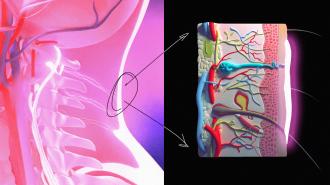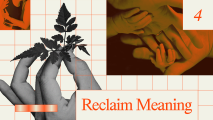A biotech startup has begun trialing a topical ketamine treatment designed to alleviate the symptoms of post-traumatic stress disorder (PTSD) without causing hallucinogenic effects.
The challenge: PTSD is triggered by living through a scary or dangerous event, such as war, natural disaster, or domestic violence. Symptoms vary, but often include persistent flashbacks, nightmares, and severe anxiety that interrupts day-to-day life.
Each year, an estimated 3.6% of US adults experience PTSD, and there’s a significant need for new treatments as the standard options — antidepressants and psychotherapy — don’t work for up to 33% of people with the disorder.
The hallucinations and dissociative phenomena typically triggered by psychedelics could deter some people with PTSD from trying them.
The idea: Psychedelic drugs, such as MDMA, psilocybin, and ketamine, have shown promise in reducing the symptoms of PTSD in clinical trials, suggesting they could be the much-needed new line of treatment for people with the disorder.
Even if any of these substances is eventually approved to treat PTSD, though, the hallucinations and dissociative phenomena they typically trigger could deter some people from trying them.
Topical ketamine: Florida-based biotech startup Psycheceutical Bioscience is developing a PTSD treatment it believes will deliver the benefits of ketamine without any hallucinogenic effects.
The treatment — NeuroDirect ketamine — is in the form of a cream that is applied to the back of a patient’s neck. Compounds in the topical ketamine then pass through the skin and bind to nerve endings.
This triggers neurochemical reactions that send nerve pulses to the brain, ideally providing therapeutic effects without causing hallucinations or feelings of disassociation.
“No psychogenic effects, such as hallucinations or dissociative phenomena, were experienced by any patient.”
Psycheceutical Bioscience
The starting line: In March 2023, Psycheceutical reported the results of an observational preclinical study in which 100 people with hard-to-control depression, anxiety, and other PTSD-associated symptoms tried the topical ketamine.
The treatment reportedly began improving symptoms within 8 to 10 minutes, and more than 80% of the participants thought it was effective enough that they requested formal prescriptions to use the topical ketamine again at home.
“No psychogenic effects, such as hallucinations or dissociative phenomena, were experienced by any patient,” according to Psycheceutical. “To the contrary, patients indicated their thought processes were clearer, more focused, and that they were more keenly aware of surroundings.”
Looking ahead: While the data from the preclinical trial isn’t enough to determine whether or not the topical ketamine is a safe and effective PTSD treatment, Psycheceutical was encouraged by it and has now launched a phase 1 study in Australia.
This time, its topical ketamine for PTSD will be administered to 24 healthy volunteers to test its safety and tolerability, as well as how it interacts with the body.
Larger trials with a placebo control group will be needed before the treatment could even be considered for approval, but Psycheceutical is hopeful its system will one day deliver the therapeutic benefits of psychedelics to people with PTSD who’d rather not trip in the name of better mental health.
We’d love to hear from you! If you have a comment about this article or if you have a tip for a future Freethink story, please email us at [email protected].






